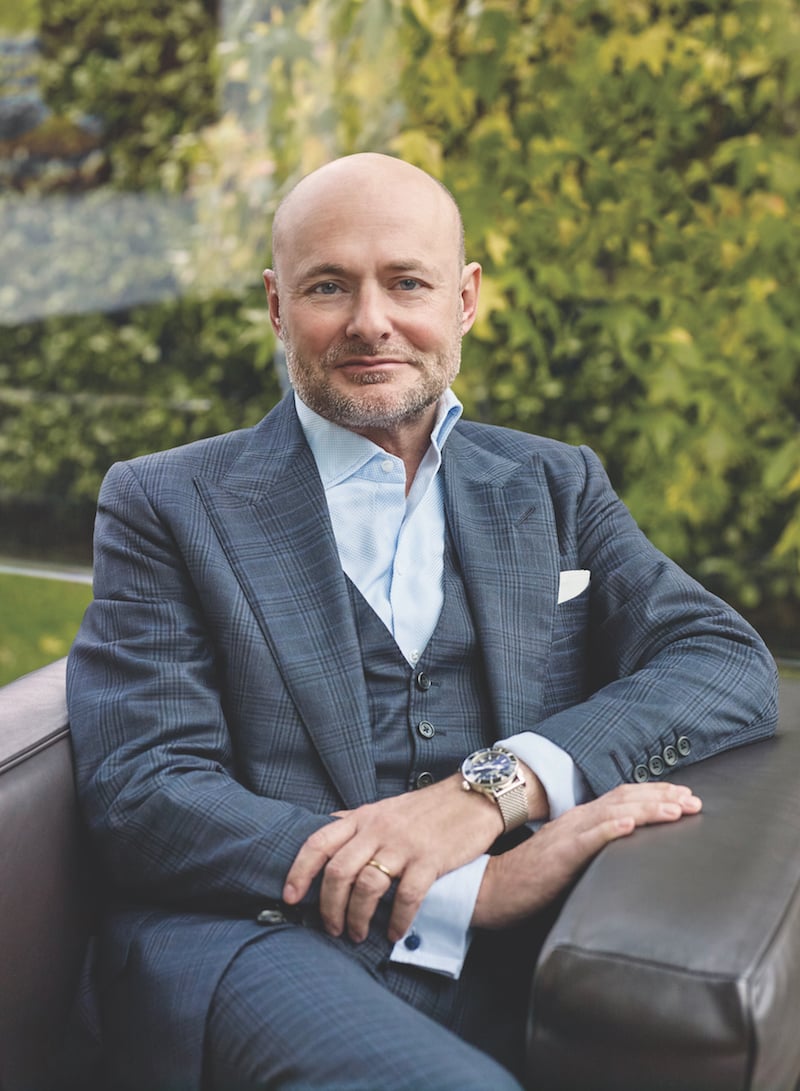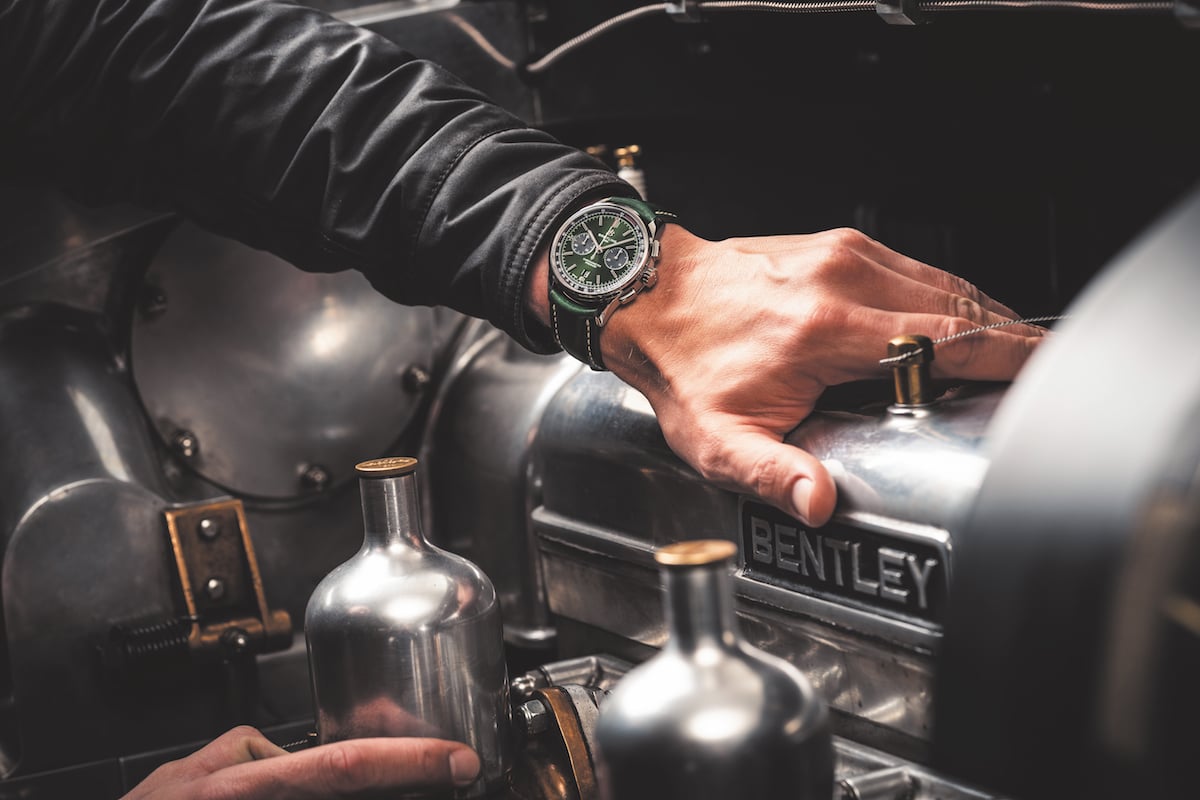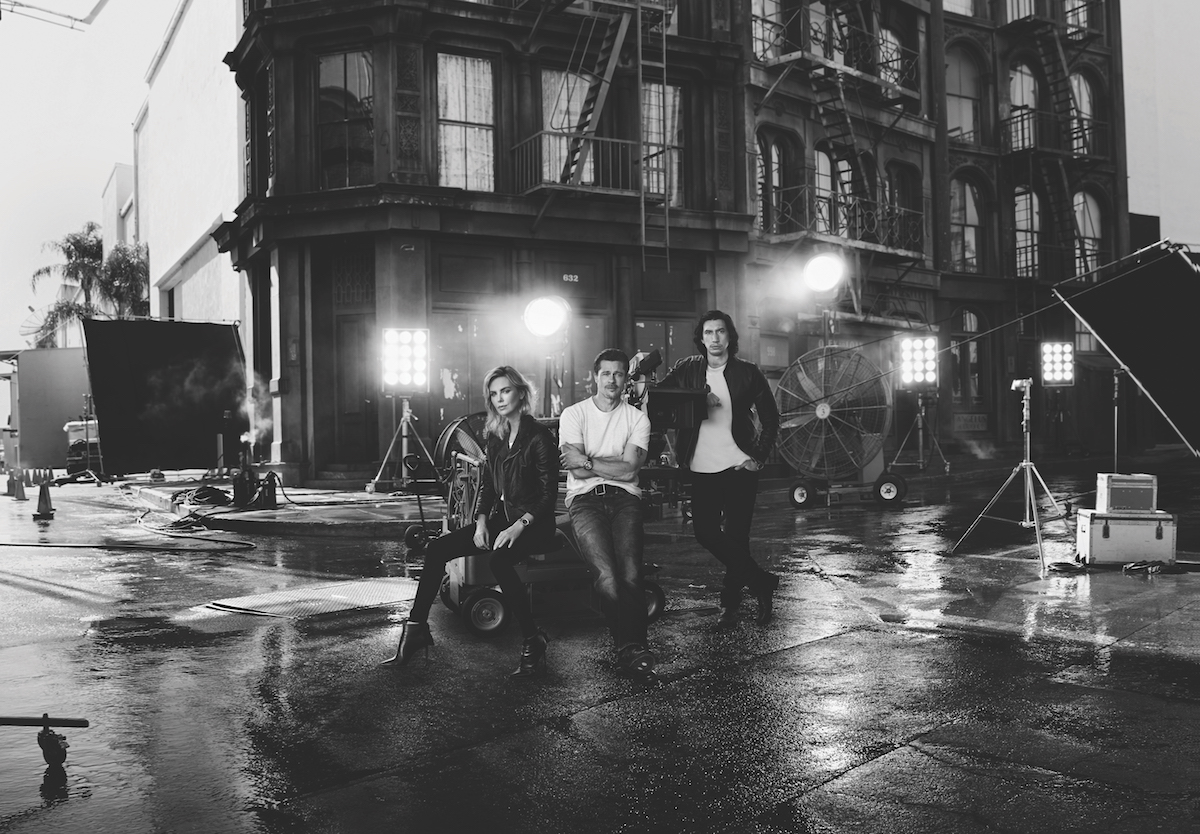“Know what movies are being watched, what music is listened to, what is going on with innovative companies… get interested in humankind and what is going on in the planet. Do all this, and you should get enough inspiration to do the right thing.”

With a desire to be “more entrepreneurial, to invest”, Georges joined Breitling as CEO and shareholder in September 2017.
Breitling’s origins are in Saint-Imier, Switzerland, where it was founded by Léon Breitling in 1884, before being acquired by watchmaker and pilot Ernest Schneider in 1979. The ensuing decades saw the brand stay in the Schneider family and produce the masculine pilot chronograph watches now synonymous with the brand.
In 2017, it was bought by UK private equity group CVC Capital Partners, and Georges was appointed to the helm.
The 54-year-old has 25 years of watch industry experience, most recently at Richemont and IWC, where he was the firm’s youngest-ever appointed CEO.
Now his reign as CEO of Breitling is heralding a new direction for the brand, marked first by a simplification of its product structure.
“The product portfolio was much too complicated,” Georges said at a press conference in New York last year.
“Too many product lines missing clear design codes and differentiation and too many variations of the same watch model in terms of dials, bracelets, colours – it was confusing. You’re knocked out by the visual complexity. Too much choice is no choice.”
Georges has brought Breitling down from the skies to reorganise its watch collections according to three pillars – air, sea and land.
Alongside the pilot’s range with the legendary Navitimer, are the Superocean diving watches, the Chronomat line with its universal appeal, the instruments for professionals, which includes the Exospace B55 and the new, elegant Premier line, dedicated to the Land segment, combining purpose and style.
Cool luxury
Georges describes the new direction as a means of broadening Breitling’s customer base to include its recent fans as well as those who admire its vintage timepieces.
“The interesting thing here at Breitling is that we have two totally different communities,” he explains. “We have, on one side, the community that likes the bigger, bulkier pilot watches of the past 40 years, which made Breitling very successful.
And a second community that loves the Breitling of the 1940s, 1950s, 1960s and 1970s. During that period, Breitling made some of the most beautiful – and more classic, more conservative – watches.
“What we need to do now is to bring those two communities together,” he adds.“If you compare it with the car industry, for example, why would Mercedes do only limousines, if they could also attract customers with SUVs and convertibles?”
Georges is also differentiating the brand from other luxury watchmakers.
“We want to be the informal challenger, the cool alternative to the conservative brands,” he says. “It’s about a more informal way of doing luxury; a luxury that is inclusive not exclusive, and in a positive way.”

Ambassadors and partners
If you look at the brand’s latest promotional concept, its boutiques, its point-of-sale material and its ambassadors – which includes champion surfer Kelly Slater, award-winning actors Charlize Theron and Brad Pitt, and environmentalist and adventurer David de Rothschild – the image is clearly one of a brand that is cool, sporty and relaxed, but elegant.
To expand upon this idea, Georges has created squads for the new 360° campaign #squadonamission with teams of outstanding personalities, who are recognised as among the best in their respective fields.
“This is how we differentiate ourselves,” says Georges. Other watch companies aren’t aligning themselves with sports like surfing and the triathlon, or with explorers like Bertrand Piccard and David de Rothschild.
These connections run deeper than simply good-looking faces in advertising campaigns. It’s an opportunity for Breitling to make an environmental statement.
For example, Breitling has partnered with Slater’s eco-conscious clothing label, Outerknown. It aligns perfectly with the brand’s direction as well as the responsibility we have as humans, explains Georges. There is a clear link between a “cool, youthful” image and sustainability. “Society is changing and millennials have a totally different attitude towards the environment than my generation.”
Working with people like Kelly Slater on ECONYL® – which is a strap made of recycled nylon that is taken from fishing nets – makes a statement.
“We cannot change the world, but Breitling can have an influence with our activities, our celebrities and our campaigns. We can send a message and raise awareness about issues such as ocean conservation, which is the main issue I want to focus on.
“Anybody, be it a company or a private person, should do the maximum they can do in their sphere of influence. Responsibility is part of what is considered cool today.” he continues. “What I want with these activities is to make people aware of how important sustainability is to our planet.”

Digital world
While Georges has certainly not revealed any plans for Breitling’s timepieces to go digital, he recognises that “the normal way to do business today is online”.
The company is much more active in digital marketing now says the CEO, and Breitling’s ecommerce capabilities have recently launched in China, the US and Europe.
“We want to be truly omnichannel,” he explains. “We need to give the opportunity for the customer to buy the product when and how they want. If they want to buy a Breitling at 2am, they can go to our website and do so.” The brand’s aim is for seamless online and instore experiences.
Breitling’s boutiques themselves are representative of the brand’s cool, informal, luxe style – think industrial loft design with pool tables and surfboards. “Our boutiques are marketing tools, too, at the end of the day,” explains Georges.
Always looking forward
Though Georges acknowledges his past successes, they don’t define him. “There are many moments in professional life that you’re proud of. But the problem is you have to start every morning again. So at the end of the day, if you fail, nobody cares about your successes of the past. I’m not a past-driven person, I just look forward.”






